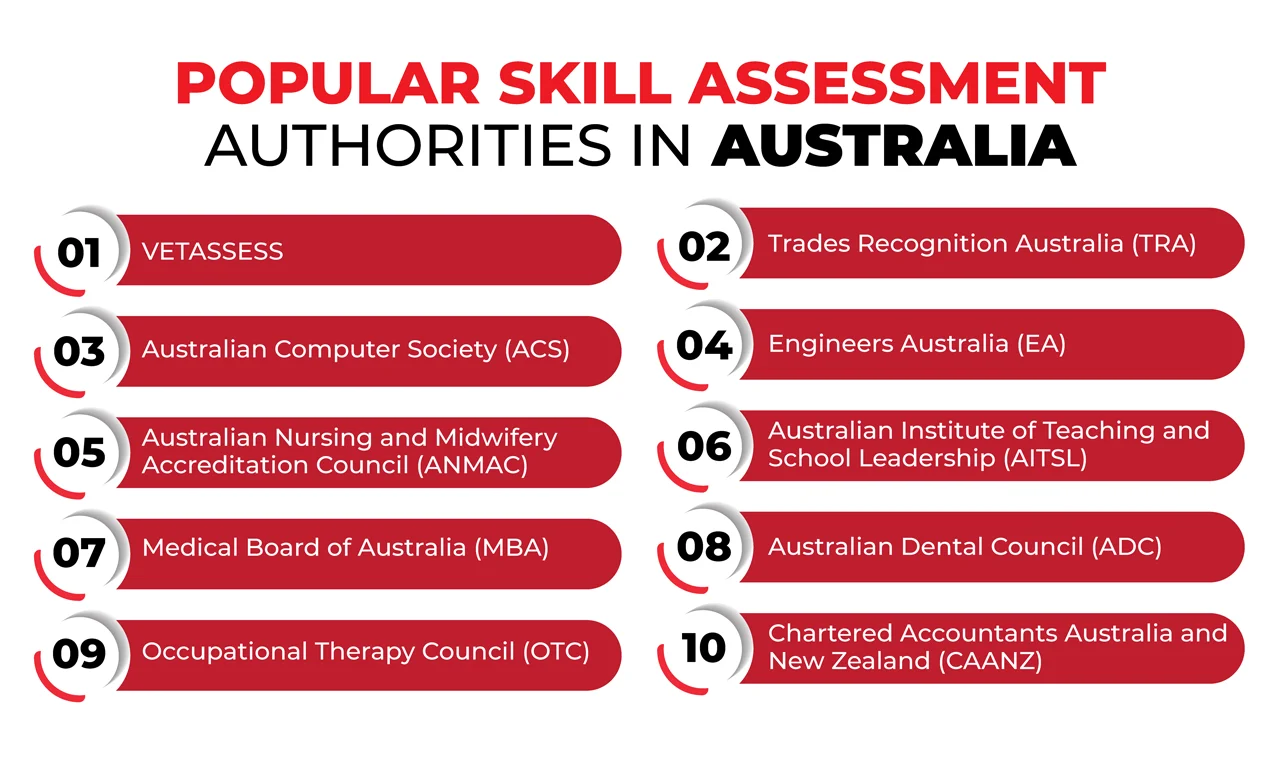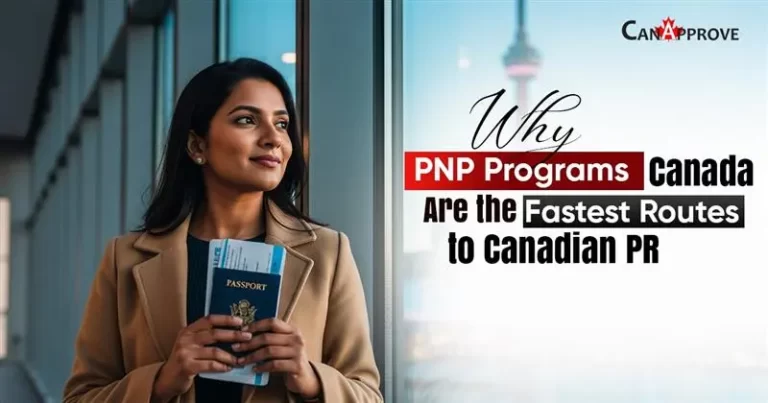Every candidate’s PR journey starts with the skills assessment, which is the most important stage in deciding whether you are eligible for a particular visa category. However, in today’s globalised world, Australia is a highly desired destination for skilled professionals from all over the world. Whatever your profession as an engineer, healthcare worker, IT expert, tradesperson, there are vast quantities of people in Australia who rely on you. Yet a successful Australian skill assessment is far from an easy thing ranging from meticulous planning to eventful attention to detail and in depth understanding of the process.
Keep reading to learn everything you need to know about the Australian skill assessment with confidence!
Table of Content
1What is Skill Assessment in Australia2Skill Assessment Australia List3Popular Skill Assessment Authorities in Australia4Documents Required for Skill Assessment Australia5How to Apply for Skill Assessment in Australia6Skill Assessment Australia Processing Time7Skill Assessment Australia Fee8Conclusion9Frequently Asked Questions
What is Skill Assessment in Australia
A Skills Assessment verifies that your qualifications and work experience meet Australian standards for a specific occupation. This step is essential for various visa pathways, including:
- General Skilled Migration (GSM) visas (e.g., Subclass 189, 190, 491)
- Employer-sponsored visas
- Temporary Skill Shortage (TSS) visas
Skill Assessment Australia List
In Australia, a skills assessment is a crucial step for individuals seeking to migrate under skilled visa categories. It involves evaluating your qualifications and work experience to make sure they align with Australian standards for your nominated occupation.
Skilled Occupation List (SOL)
Australia maintains a Skilled Occupation List (SOL), which identifies professions eligible for various skilled visa programs. This list is regularly updated to reflect the country’s labor market needs. Occupations are categorized into:
-
- Medium and Long-term Strategic Skills List (MLTSSL): Occupations in high demand for the long term.
- Short-term Skilled Occupation List (STSOL): Occupations needed to fill short-term skill gaps.
- Regional Occupation List (ROL): Occupations in demand in regional areas.
Each occupation on the SOL is assigned to a specific assessment authority responsible for evaluating qualifications and experience. You can find the current SOL and the skill assessment authority list on the Australian Government’s Department of Home Affairs website.
Popular Skill Assessment Authorities in Australia

Each occupation on the Skilled Occupation List (SOL) is assigned to a specific assessment authority responsible for evaluating qualifications and experience as part of the Australian skill assessment process. These authorities are responsible for assessing the qualifications and work experience of applicants to make sure they meet Australian standards. Below is a list of some key assessing authorities:
| Assessing Authority | Occupation Category |
|---|---|
| VETASSESS | General professional occupations |
| Trades Recognition Australia (TRA) | Trade occupations |
| Australian Computer Society (ACS) | ICT-related professions |
| Engineers Australia (EA) | Engineering professionals |
| Australian Nursing and Midwifery Accreditation Council (ANMAC) | Nurses and midwives |
| Australian Institute of Teaching and School Leadership (AITSL) | Teachers |
| Medical Board of Australia (MBA) | Doctors and medical professionals |
| Australian Dental Council (ADC) | Dentists |
| Occupational Therapy Council (OTC) | Occupational therapists |
| Chartered Accountants Australia and New Zealand (CAANZ) | Accountants |
Documents Required for Skill Assessment Australia
The documents required for an Australian skill assessment in Australia can vary depending on the assessing authority and your nominated occupation. However, the following are commonly required:
Passport: Copy of the bio-data page for identity verification.
Qualification Certificates: Certified copies of degrees, diplomas, or relevant academic qualifications.
Academic Transcripts: Detailed records of subjects studied and grades achieved.
Employment References: Letters from employers specifying job roles, duties, employment dates, and working hours.
Curriculum Vitae (CV): A comprehensive resume highlighting work experience, skills, and qualifications.
Payslips or Tax Records: Evidence of employment such as payslips, tax returns, or contracts.
Skills Training Certificates: Additional certifications or training relevant to your occupation.
Professional Registration: Proof of licensing or registration for regulated professions (e.g., nursing, engineering).
English Language Test Results: Results from IELTS, PTE, or TOEFL if required.
Photographs: Passport-sized photographs as per the assessing authority’s guidelines.
Other Supporting Documents: Any additional evidence required by the assessing authority, such as portfolios for creative fields.
How to Apply for Skill Assessment in Australia
1. Identify Your Occupation and Assessing Authority
- Occupation: Find your job on the SOL.
- Assessing Authority: Each occupation has a designated authority (e.g., Engineers Australia, VETASSESS, ACS).
2. Understand the Requirements
- Each authority has unique criteria, including:
- Educational qualifications
- Relevant work experience
- English language proficiency
- Check specific guidelines on the assessing authority’s website.
3. Prepare Documentation
Common documents include:
- Academic transcripts and certificates
- Employment references
- Curriculum Vitae (CV)
- Proof of English proficiency (IELTS, TOEFL, or PTE)
- Identification (passport)
4. Submit Your Application
- Create an account on the relevant authority’s portal.
- Upload required documents.
- Pay the assessment fee.
5. Await Results
- Processing times vary but generally take 8-12 weeks.
- Some authorities offer priority processing for an additional fee.
Skill Assessment Australia Processing Time
The processing time for Australian skill assessment can vary depending on the assessing authority and the complexity of your application. Here are the general processing times for some of the main assessing authorities:
| Assessing Authority | Processing Time |
|---|---|
| VETASSESS | Typically 8 to 12 weeks |
| Trades Recognition Australia (TRA) | 6 to 12 weeks |
| Australian Computer Society (ACS) | 4 to 12 weeks |
| Engineers Australia (EA) | 6 to 12 weeks |
| Australian Nursing and Midwifery Accreditation Council (ANMAC) | 8 to 16 weeks |
| Australian Institute of Teaching and School Leadership (AITSL) | 8 to 12 weeks |
| Chartered Accountants Australia and New Zealand (CAANZ) | 8 to 12 weeks |
| CPA Australia | 6 to 10 weeks |
| Institute of Public Accountants (IPA) | 6 to 10 weeks |
| Australian Physiotherapy Council (APC) | 4 to 8 weeks |
| Australian Dental Council (ADC) | 4 to 8 weeks |
Factors that May Affect Processing Time:
1. Application Completeness: Delays can occur if documents are missing or incomplete.
2. Volume of Applications: Processing time may vary depending on the time of year and the number of applications being processed.
3. Occupation-Specific Requirements: Certain occupations may require additional assessments or evaluations, which can extend processing times.
4. English Language Proficiency: If you need to provide English test results (e.g., IELTS), this may affect the timeline.
Skill Assessment Australia Fee
The fees for Australian skill assessment vary depending on the assessing authority and the occupation you are applying for.
Factors that May Affect Skill Assessment Fee:
- Fees can differ based on the occupation and the complexity of the assessment.
- Some authorities may charge extra for services such as document verification, appeal processes, or expedited processing.
- The fee is generally paid online via the assessing authority’s website when submitting your application.
- Make sure to check if the fee is refundable in case of unsuccessful assessments.
- Some assessing authorities offer a Priority Processing Fee, which can speed up the process but comes at an additional cost.
Conclusion
Australian skill assessment is an important step toward your dream of living and working in Australia. With careful planning, attention to detail, and perseverance, you can navigate the process successfully in 2025. Whether you’re an engineer, healthcare worker, IT expert, or tradesperson, Australia needs skilled workers like you! By taking the right steps and choosing the right assessment authority, you can be one step closer to getting your Australian visa.
Don’t try to figure it all out on your own mate! Reach out to CanApprove’s Australia immigration experts today to make sure your Australian skill assessment goes smoothly. We’ll guide you through every step to help you reach your goals.






I am working as a freelancer in quality analyst, can i apply for the ACS skill assessment for Australia
Hi Ruth,
Yes, you may be eligible to apply for the ACS (Australian Computer Society) Skill Assessment as a Quality Analyst, but there are key factors to consider. ACS assesses IT-related occupations, so your work experience should align with relevant ANZSCO codes, such as ICT Business Analyst or Software Tester.
As a freelancer, you need to provide strong evidence of your work, including contracts, invoices, payment proofs, and reference letters from clients. The ACS also requires at least 20 hours of work per week to consider it as full-time experience.
To get a detailed evaluation and guidance on your eligibility, share your details, and we can arrange a consultation with our experts. Looking forward to assisting you! BOOK A FREE CONSULTATION NOW!